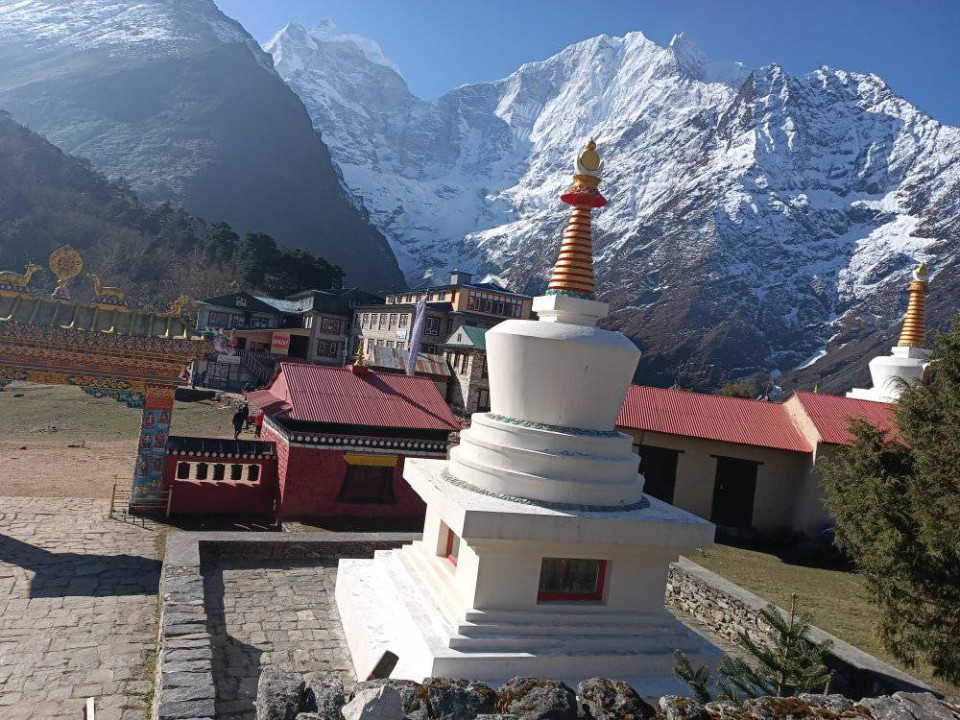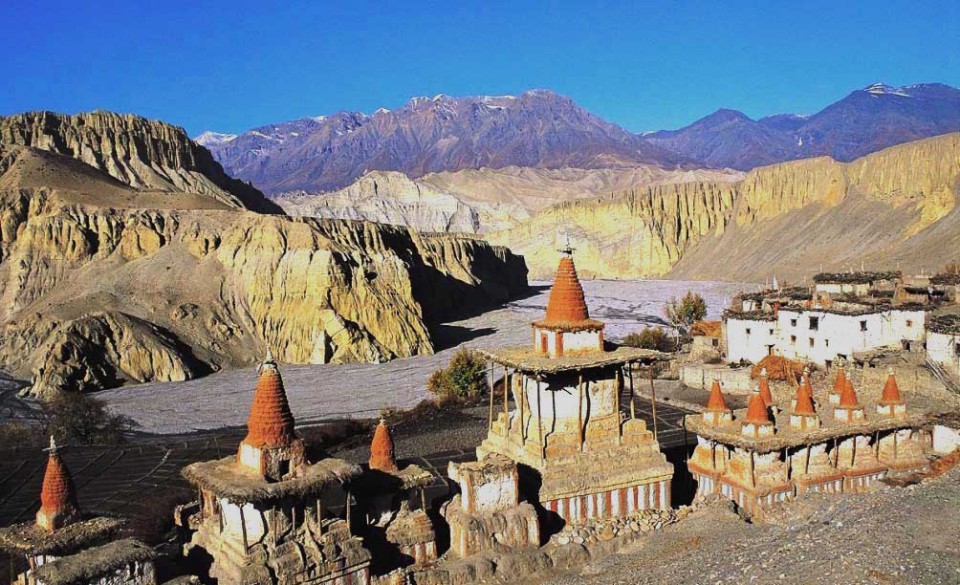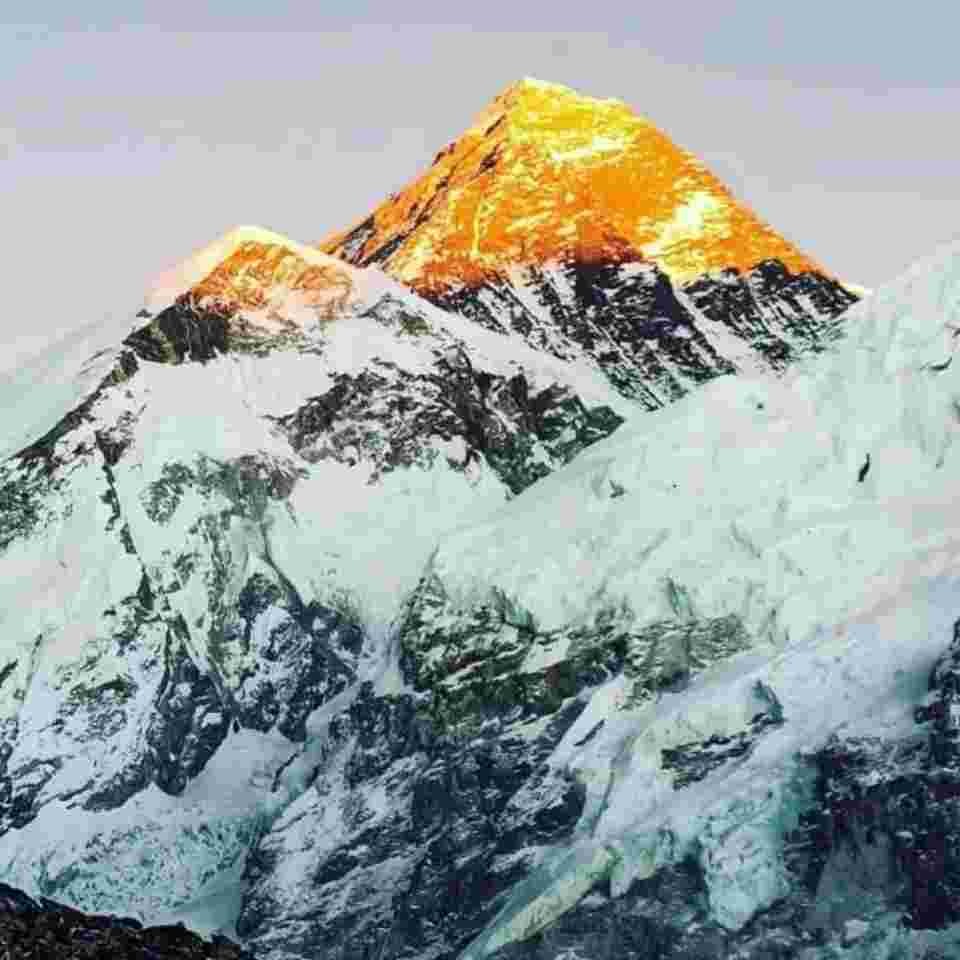- 21, Sep 2023 |
- adventuremagic.com
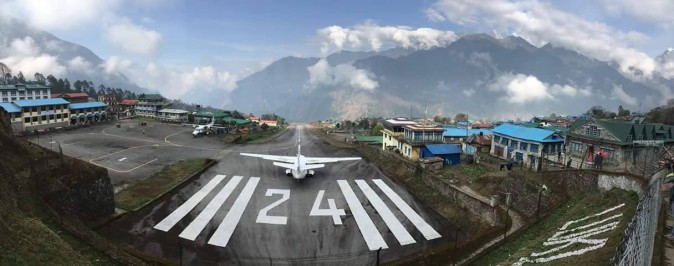
Everest Base Camp Trek without Guide
Everest Base Camp Trek without a Guide
A fantastic experience through the magnificent Himalayas is the Everest Base Camp trek. You may learn more about the diversity of Nepalese culture and the area's natural beauty through this spiritual and cultural journey.
The trek offers the once-in-a-lifetime chance to see Mount Everest and immerse yourself in the stunning panoramas of snow-capped peaks, glaciers, and serene alpine lakes surrounding you. As you hike through the twisting trails and verdant forests, learning the ancient secrets of the Sherpa people and their way of life, you'll be enchanted by the wonderful air of the area.
However, you should be aware of the implications and challenges that can occur during the hike as a result of little errors before you embark on the trek. One such error is Trekking without a guide.
Can EBC be done without a professional guide?
Straight NO is the response to this. The Everest Base Camp journey must be undertaken with a qualified guide. To help the trekkers better comprehend, a knowledgeable guide is comparable to the first permit you'll need for every journey in Nepal.
Why is it So?
Only foreign trekkers accompanied by a qualified and experienced guide will be permitted to participate in any circuit treks or peak ascents, according to the Nepalese government and other tourism agencies. The important and sole consideration in making this choice was the safety of the tourists. The Nepalese and Nepal Governments must safeguard their safety and well-being when any foreigner travels to Nepal with the enormous dream of experiencing the mountains, traversing the terrain, and taking in the beauty of Nepali nature.
Language Problem
In addition to that, there are various other repercussions that you can have if you undertake the trial without a qualified advisor, and one of the biggest issues might be the language. While trekking in such a distant location, foreign hikers should keep in mind that many locals require assistance understanding languages other than their own. Many people require assistance in order to understand Nepali. Even if you know some basic Nepali, you could still require assistance speaking to people there. A knowledgeable tour guide, however, can act as a translator between you and the residents in that area.
While navigating the path
Even if you may have thoroughly studied the entire trial before beginning the journey, you must keep in mind that you may have overlooked some tiny aspects that would have negatively impacted your trekking experience. A qualified guide, however, can address this issue. From the beginning to the end of the journey, they will be remembered at every step.
Imagine that a week before your climb, you did some research on the Everest Base Camp. Will it be difficult for you to communicate with the people or even the proprietors of the tea houses if they need assistance understanding the Nepali language? The probability of this situation happening is very high, hence the answer is yes. Professional trek leaders are therefore necessary to make the dialogue more simple, comprehend the locals, and establish a rapport with them.
Why do some trekkers want to avoid guided trek?
Some trekkers prefer an autonomous trip to Everest Base Camp despite the fact that it is generally not advised for a variety of reasons.The desire for independence and self-sufficiency may be one factor in the Everest Base Camp's absence of a guide. Some trekkers prefer to organize and carry out their trek without the help of a guide in order to push themselves and test their abilities. Those who have already trekked and climbed mountains could find this to be a satisfying experience.
Saving money can be another justification. Since hiring a guide might be expensive, some hikers may start opting to forego one in order to save money. A manual's price may be too high given the additional safety and help they offer.
For a more authentic and realistic experience, some hikers choose to hike alone. Without a guide, trekkers can engage with local people and groups more directly and take the journey at their own pace. Trekkers should never decide to hike without a guide, despite the fact that doing so may seem daring and brave.
Obtaining the EBC trek permits without a guide
To tackle the Everest Base Camp, two permissions are required: the Sagarmatha National Park Entry Permit and the Khumbu Rural Municipality Permit. However, only a qualified trekking guide can help tourists get these permits. The Nepalese government and tourism officials have passed a strict law prohibiting solo trekking, as was indicated in the part above.
Additionally, advisers know just where offices to go to in order to secure the permits. Therefore, hiring a professional guide would be the best option if you want to complete the Everest Base Camp journey without having to worry about paperwork or permissions.
Permit Costs and availability
A Sagarmatha National Park Entry Permit and permission from the Khumbu Rural Municipality are necessary for the Everest base Camp trek, as was described in the section above. The cost of the Sagarmatha National Park Entry Permit is approximately Nepali Rupees 3,000, or $23, and the Khumbu Rural Municipality Permit is approximately $20 per person.
The Nepal Tourism Board in Kathmandu is where you may pick up an admission permission for Sagarmatha National Park. The entry permission for the Khumbu Rural Municipality can be acquired once landing in Lukla.The Gaurishankhar Conservation Area Permit is an additional, optional permit. This NPR 3,000 permit is only necessary if you're making the trip from Jiri to Everest Base Camp.
Consequences to face while trekking without a Guide
Trekking to Everest Base Camp is a rewarding and difficult adventure that requires meticulous planning and preparation. Choosing to use a guide or not is one of the most important decisions that hikers must make. Although some hikers opt to trek without a guide, it is not practicable. Along with breaking the law, there are a few risks to trekking without a qualified guide.
Safety Risks
A breathtaking and high-altitude trek demanding careful planning and preparation is the Everest Base Camp Trek. Moving around can be difficult due to the terrain and altitude. Without a guide, hikers are more likely to become lost or make errors that risk their safety. The purpose of guides is to impart knowledge about how to negotiate the terrain and identify hazards.
In the event of an accident or injury, they can also offer first aid and emergency help. Trekkers may be more susceptible to the potentially lethal effects of altitude sickness without a guide. Trekkers can benefit from the assistance of guides in adjusting to the altitude and spotting early signs of altitude sickness.
Difficulty in finding Route
The route to Everest Base Camp travels through a sizable, rural area that can be challenging to navigate. Because there are so many different paths, trails, and routes to select from, hikers may struggle to find their way or give up, becoming lost. Attendants are given instructions on how to go around and choose the best routes.
Additionally, they can provide you advice on significant sights, rest areas, and other attractions. Trekkers who require a guide may expend time and effort trying to navigate on their own or choose a riskier or more difficult path. The possibility of an accident, damage, or exhaustion rises as a result.
Misconceptions about Culture
In Nepal, trekking is both a physical and cultural experience. The Everest Base Camp walk takes participants through a number of communities and regions, each with its own traditions, dialects, and customs. Trekkers might want a guide in order to interact with locals or comprehend their customs and enterprises. This could be off-putting or even confusing. Trekkers can assist local guides by learning about their customs and traditions and navigating cultural barriers.
Additionally, they can help trekkers interact with locals in a courteous and meaningful way, enriching the trek's cultural experience. Without a guide, trekkers could lose out on this important part of the adventure and risk unintentionally hurting or disrespecting others.
Limited Resources
It is a must for a climb to Everest Base Camp that resources like food, water, shelter, and emergency aid be accessible. Trekkers may be able to locate and obtain these money with the help of a guide. Trekkers can get entry help from guides, as well as advice on where to find reserves. They might provide materials and tools as needed. Without a guide, hikers are more likely to get undernourished, dehydrated, and exposed to the elements. This raises the likelihood of exhaustion, disease, and other health problems.
Lack of Communication :
Without a guide, climbing the Everest Base Camp can be isolating and challenging. Trekkers could run into issues with navigation, communication, and possible medical emergencies. The isolation and lack of community support that might arise from walking without a guide can exacerbate the physical and mental challenges of high-altitude trekking.
However, if you are trekking with a qualified guide, you will always be supported, and the guide will give you the emotional and physical assistance you need to successfully complete the walk.
Challenges During the Trek
Everest Base Camp without a Guide
Without a guide, the Everest Base Camp hike is difficult and hard, and trekkers may encounter numerous difficulties. The following are some of the typical difficulties that hikers to Everest Base Camp may encounter:
Altitude Sickness:
Altitude sickness can develop when hikers ascend higher because the air gets thinner and the body may not get enough oxygen. Symptoms include a headache, nausea, vomiting, and trouble breathing. Altitude sickness must be avoided by hikers by learning to acclimate and ascend gently.
Weather Conditions:
With abrupt temperature swings, strong winds, and snowfall, the weather at Everest Base Camp can be erratic and unpleasant. Trekkers must be equipped for all types of weather, and in the event of extreme weather, the trek may be postponed or even abandoned.
The EBC trek is a strenuous route that requires trekking for extended stretches of time, making steep ascents and descents, and carrying a hefty rucksack. To prepare for the trek, hikers need to be physically fit and practice frequently.
Accommodation :
Basic amenities like hot water and sanitary facilities could be available at the teahouses and lodges along the walking path. Trekkers must pack personal hygiene supplies and be ready for basic living circumstances.
Crowded Routes:
An extremely popular hiking route is the Everest Base Camp trek. It's possible that the trail will grow crowded, especially during the popular hiking season. On crowded trails and extremely high inclination, trekkers must be kind and patient with one another.
Safety Advise:
Although it can be a wonderful and difficult experience, hiking to Everest Base Camp is also risky. A safe and successful trek depends on taking simple safety precautions. Before embarking on the tour, you should be aware of the following safety advice.
Well Acclimatized
When climbing to high altitudes, altitude sickness, which can result in headaches, nausea, and dizziness, is a serious concern. Altitude sickness can be avoided by acclimating gradually and taking rest days. The typical norm is to ascend 300–500 meters each day and to take a break after each 1000 meters.
Drink lots of water and eat a lot.
Staying hydrated and well fed is crucial for maintaining strength and health throughout the walk. Drink a lot of water (at least 3 to 4 liters each day) and eat nutrient-dense foods like fresh produce, whole cereals, and grains. Avoid caffeine and alcohol because they might contribute to dehydration and worsen altitude sickness.
Other Blogs
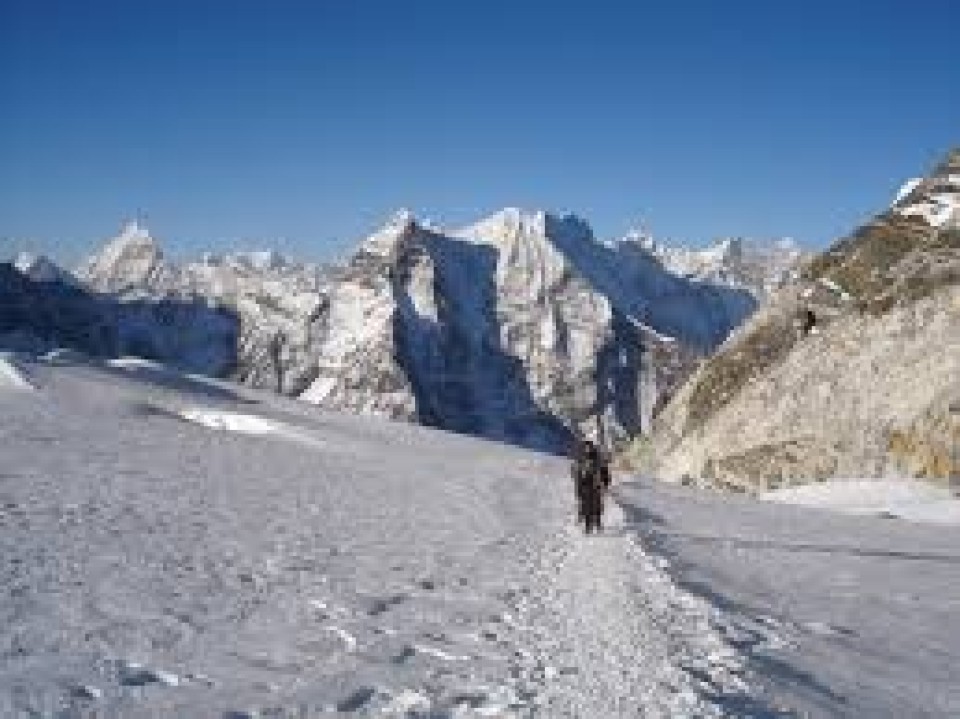
Best Time to Climb Island Peak
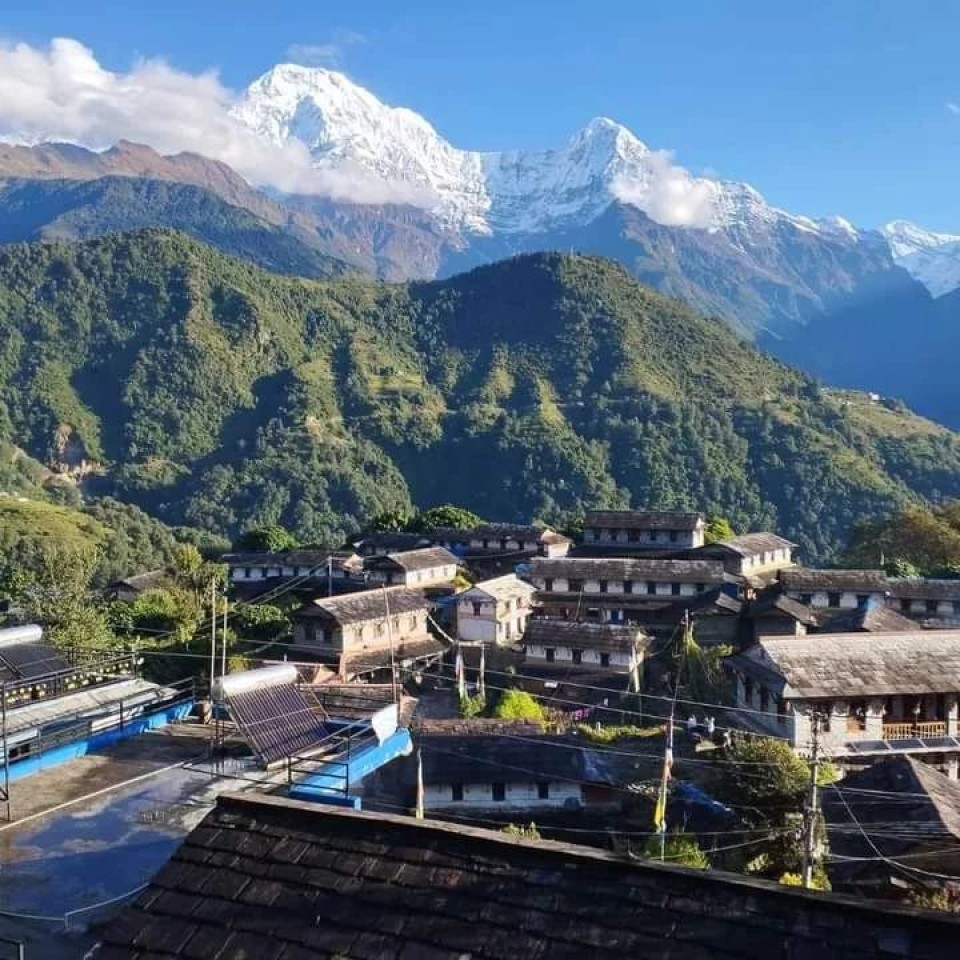
Best Time to Trek Annapurna Base Camp
